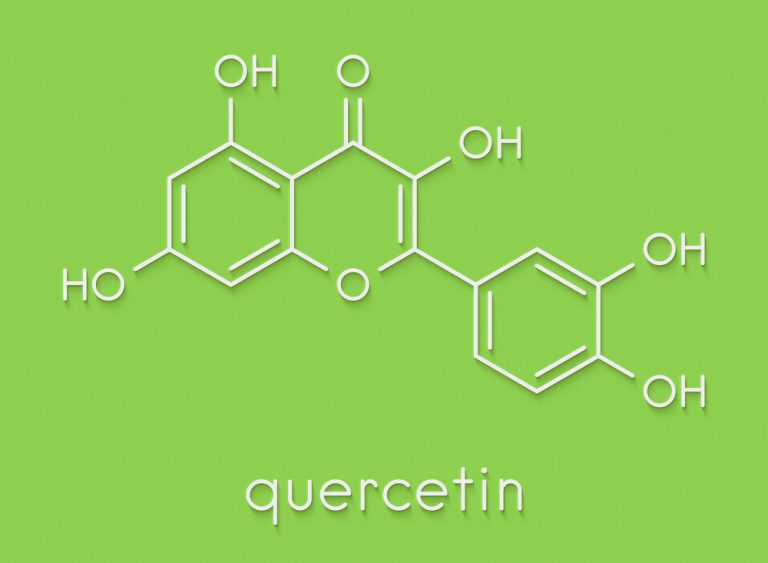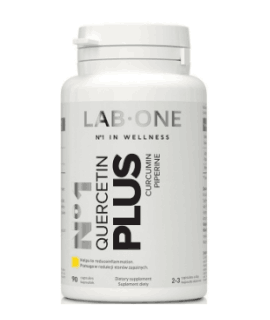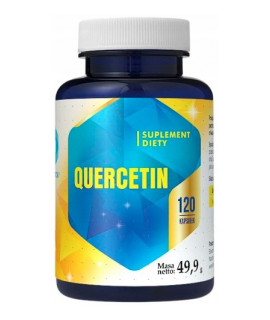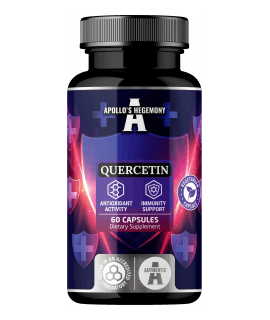From hay fever to eczema, allergic reactions can be difficult to control, especially if you are sensitive to inhalant allergens such as pollen or animal dander. While avoiding allergens is ideal, if this is not always possible, you may benefit from supplements such as quercetin to reduce the severity of an allergic reaction.
What is quercetin?
Quercetin is a flavonoid antioxidant derived from plants, has anti-inflammatory properties and acts as a natural anti-histamine.
How can quercetin help allergies?
The majority of studies carried out on quercetin have been performed in laboratory tests, showing that quercetin can directly stabilise the membranes of mast cells. These cells would have otherwise produced histamine during an allergic reaction, therefore implying that quercetin is a natural antihistamine.
Another mechanism which may play a part in the antihistamine effects of quercetin is by helping with leaky gut symptoms by sealing the tight junctions, therefore helping to reduce immune reactions and lower histamine levels.
As a powerful antioxidant, quercetin also works as a scavenger of free radicals, reducing oxidative stress. This helps to lower inflammation, calming allergic reactions such as skin redness or itchy eyes.
To support these findings, animal studies have also identified that quercetin is able to suppress anaphylactic allergic responses in rats and reduce inflammation in asthmatic animals.
Quercetin – what foods is it in?
Quercetin is found in green leafy vegetables, red onions, red grapes, broccoli, peppers, apples, raspberries, cherries, citrus fruits, ginger, garlic, black tea, green tea, and red wine. Quercetin content is highest in onions, so have plenty of dishes based on onions such as curries, or blended into pasta sauce.
While eating a range of these foods on a regular basis is key, how you prepare these foods can make a huge difference to the level of quercetin available. Frying or boiling these foods lowers the quercetin content both due to the heat and the antioxidant leaching into the water when boiling, therefore most fruits and vegetables are best eaten raw or very lightly steamed.
How to take quercetin
Taking quercetin for allergies is recommended as a preventative as it is most effective at reducing the inflammation and histamine release during an allergic reaction. It’s important to note that quercetin supplementation does not necessarily calm an allergic reaction if taken after exposure to the allergen.
Quercetin is best taken daily during high pollen seasons if suffering from hay fever, or the days leading up to allergen exposure if a trip is planned somewhere with animals you are allergic to for example. Quercetin can also be taken all year round if an allergen is constantly present in the environment at home such as dust mites.
A suitable dose of quercetin is 400-600 mg one to three times a day, depending on allergy severity. To enhance the absorption, bromelain (an enzyme found in pineapple) and vitamin C are often added to quercetin supplements.
Quercetin can be taken with or without food, but absorption may be slightly enhanced away from food, or just before a meal.









